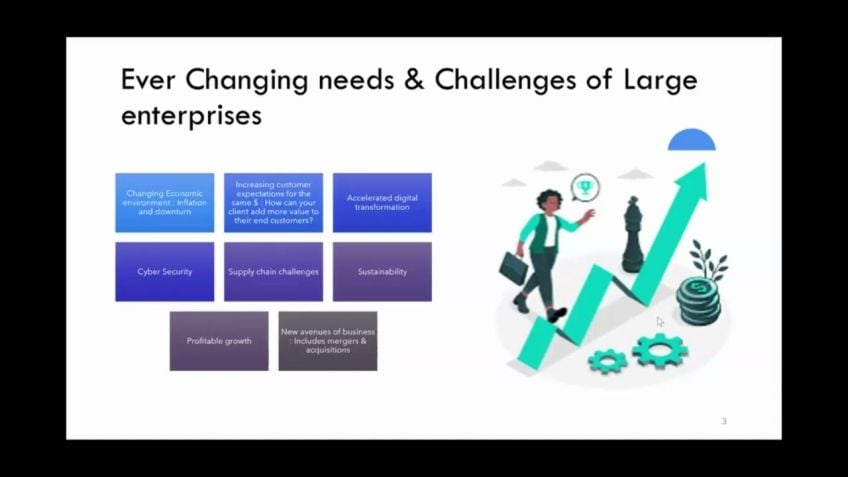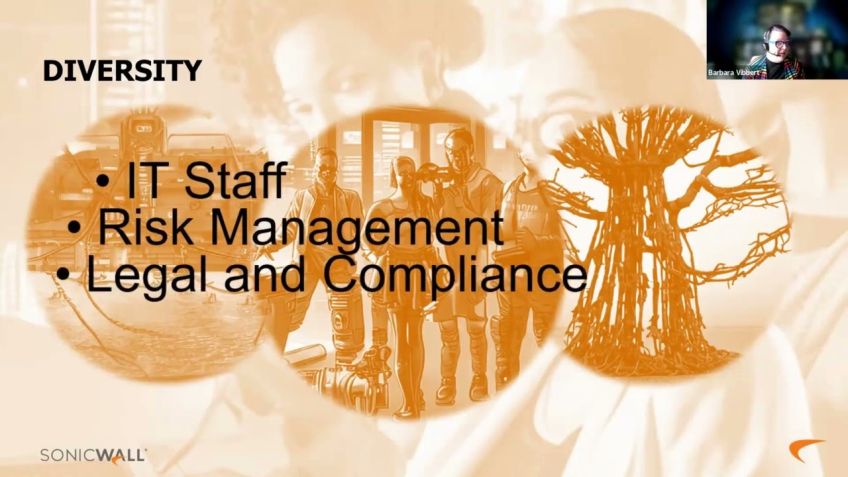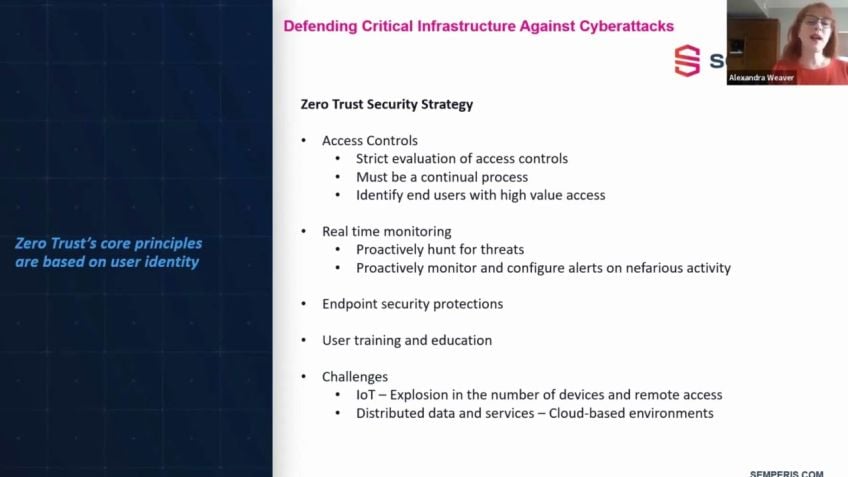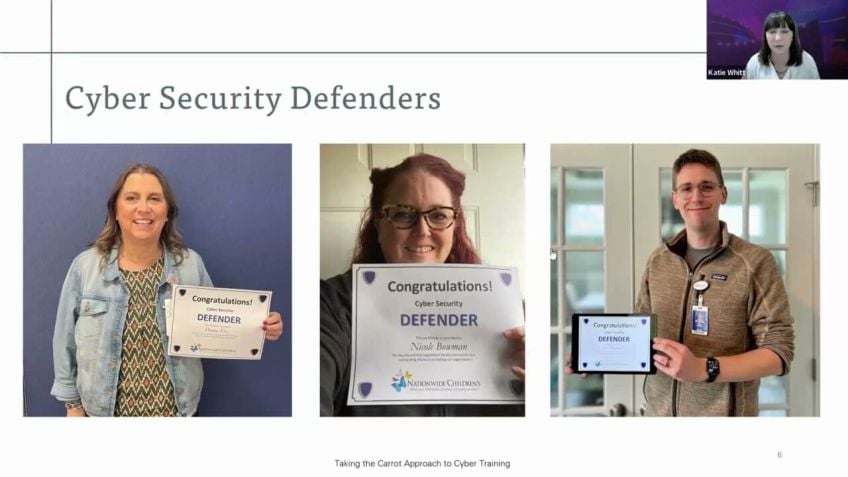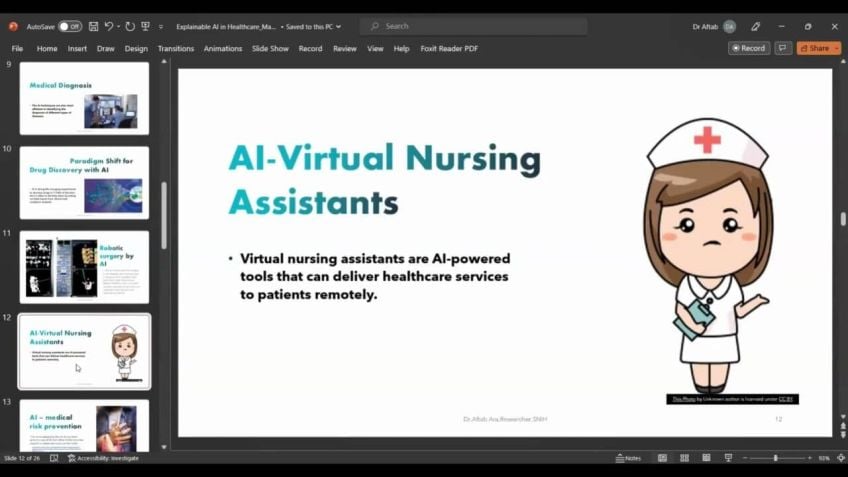The Global Data and Cyber Security Skills Gap: Current Trends and Future Directions
Onur Korucu
VP of Consulting EMEA, Cyber Security & Data ProtectionA Deep Dive into The Global Data and Cybersecurity Skills Gap
Hello everyone, and thank you for joining my session today on the global data and cybersecurity skills gap. As we advance deeper into the digital age, the need for individuals skilled in cybersecurity and data protection is more crucial than ever before. With the rapid digitalization and emergence of new technologies, the nature of work has irrevocably changed. Cybersecurity or data security skills are now regarded as essential for the modern workplace.
My name is Honor Ko, and among my various professional roles across continents, I've had the pleasure of working as a senior management management and experienced consultant in different geographies of the world. Today, I serve as the Vice President of Consulting at one of the Microsoft partners, specializing in cybersecurity and data protection.
The Current and Future Cybersecurity Landscape
In an industry molded by rapid digitalization, the demand for cybersecurity or data security specialists continues to increase. However, the skills gap in these digital roles is a major hindrance in maintaining pace with the digital transformation. Interestingly, businesses often struggle to find talent for such roles.
The demand for cybersecurity, privacy, and IT audit roles, in particular, is high, especially in the aftermath of the pandemic, which has forced accelerated digitalization across business sectors. Understanding emerging technologies like AI, Blockchain, and the fundamentals of cybersecurity in this new digital era is key to security specialists' roles.
The Main Factors Driving the Digital Skills Gap
Five primary factors contribute to the driving force behind the digital skills gap. Firstly, the demand for digital skills has skyrocketed with the acceleration of digitalization and the emergence of new technologies. Secondly, social inequalities affect opportunities to develop digital skills. Next, the traditional modes of education may not effectively satisfy the needs for digital skills that the market currently requires. Furthermore, changes in the nature of work, especially with increased remote and digital-centric work, have created a need for more digital solutions and virtual work competencies. Finally, technological advances have necessitated agile skills adaptation from workers, causing a constant demand for learning and upskilling.
How Can We Address the Digital Skills Gap?
To address the digital skills gap, organizations can undertake several key initiatives, all of which fall under the following six action points:
- Common Skills Framework
- Skill-based Hiring
- Upskilling and Reskilling Initiatives
- Digital Inclusive Initiatives
- Industry Experience Opportunities
- Adopting a Lifelong Learning Approach
Workforce and Cybersecurity: The Intertwining Path
Despite the advancements and reliance on technology, the domain of cybersecurity ultimately revolves around how well employees work together to protect their organizations. The challenge organizations face today is finding, recruiting, and retaining people who are qualified, skilled, and certified for various network and security-related roles. The need for cyber and data security awareness training for both technical and non-technical employees is vital for developing critical cyber hygiene skills. A technologically advanced world is meaningless without the people to guide, protect and develop it. We are young, technology is young, and the future of cybersecurity looks promising. Let's shape that future together.
Stay tuned to this blog space for more insights and guides about cybersecurity, technology, and data protection. Until next time, stay safe and digitally savvy.
Video Transcription
Hello, everybody and good afternoon. Thank you for taking time and attend my session today. Actually, uh it it it is a very specific topic today. We will talk about us. But before I start my presentation, I would like to introduce myself to you.My name is Honor Ko ah I have studied my and continued my professional life in multinational professional services such as KPMG PWC grant. And I had opportunities to work as a senior management management and experienced consultant in different geographies of the world. And four years ago, I moved to Dublin and I started to work as a GRC cybersecurity and data protection senior and group manager with a A UK, Ireland. It is a Microsoft and accenture joint venture and very global company actually. So we needed to uh connected with different countries. I mean that in Europe and us and in Africa and Asia countries. And last year I got my new title. This is the Vice president of consulting and now I am consulting of cybersecurity and data protection, Vice president, one of the Microsoft partners. If we continue and start with our first slide in here. Our topic is today the global data and cybersecurity skills gap. And we will talk about the current trends and in the future directions, the global digital skills gap, actually, this rapid and widespread digitalization has changed the nature of work and the digital skills are now regarded as essential for modern workplace.
We mean that actually if you wanted to be a cybersecurity or data security or privacy specialist, you need to take some skills, you need to get some certifications and you need to understand what is going on all over the world. Because let's talk about a little bit our new emerging technologies in this point. Because if you want to be part of this world, you need to understand what is A I, what is Blockchain, what is this new emerging technologies and what is the fundamentals of cybersecurity in this new digital era? And actually, I just want to summarize something in here because this workforce do not always the skills need to manage digital transformation and business often struggle to find talent for digital roles, this digital roles for us, this cybersecurity, data security privacy, L SI T audit or you know, this kind of it environment roles.
So when overreaching aimed the research was to carry out a scoping study to examine the evidence associated with various uh this kind of research. There are a lot, lots of different issues we can understand in here because to do this, we connected and a analyze us to key trends the stakeholders are doing in response to do we connected. For example, some of the principal steps that are being taken to address this challenge, potentially close the digital gaps. True these gaps, the di I mean that all these digital gaps drew a focused and rapid assessment of recent literature. The research offers a snapshot. Maybe we can understand in here because these big four companies or these survey companies try to understand what's going on in European part in us or the other part of the geography of the world and the digital skills landscape are compressive and systematic evolution in evidence.
Let's continue to ask some good questions in this point because what does this digital skills landscape look like? I try to put six different bullet points in here. I think these are the major ones. The first one, rapid and widespread digitalization has changed the nitro for making digital skills an essential attribute and the modern workforce actually in here, I try to explain that for example, for business and industries, 2023 begin with convergence and accelerated digitalization after pandemic because as a vice president, when we try to hire somebody for cybersecurity for privacy team, for example, we just try to understand their skill set.
First of all, these disruptions, I mean that after pandemic time to working environments and growing calls for greater workforce, inclusively inclusivity and equality and social justice. All these points are really so fundamental for our workforce right now. And this brought about immense challenges but also created a moment to opportunity to reign what the workplace might look like and how to manage workforces in the future. Actually, there have also been discussions of reducing post panic unemployment, preparing workforces for feature of work and finding the digital solutions. According digital skills have been underlined as key for feature of post pandemic work because you know that you heard lots of these kind of stories all over the world right now, they hired lots of people, especially these giant technology companies. But after pandemic, they exist and you can see lots of this kind of very spectacular tweets on Twitter or on this kind of social media. So these are really so important for us because in this pandemic situation, the digital needs are really were really so increasing. But after all, after a pandemic, we understood that, oh actually, we can handle the work which a little bit, you know, not lots of these kind of sources a little bit easier than before. So these are really so dangerous for our workforce.
We need to understand this kind of legal issues too for these digital gaps in the future. And let's talk about the other parts in here because these skills span a broad spec spectrum and encompass several country categories including information and data literacy, processing and management, communications, and collaboration through digital means, digital content, creation, security of information or communication technologies.
Because in today's, we are not calling that it, we are calling that IC T these are a little bit different then because the use of hardware and icy T tools for problem solving and critical thinking is really the fundamental. Maybe I can say that because as a part of Microsoft world, we are using lots of different, these kind of solutions, technological solutions. So we just try to understand the needs of our customers. I mean digital skills can be applied at the basic level. I mean that the chart on devices, opening emails, scrolling down a page using word processing software, but maybe or evolve more advanced advanced tasks. I mean that developing or integrating emerging technologies as artificial intelligence, implementing and running cloud based infrastructure and digital content and developing and programming software are you know, the real needs in our sector and especially employers are actively seeing employees with digital skills in order to adopt and increasingly digital digital environments in eu countries because I'm living in Dublin and I'm really so good at this European environment.
So there is a shortage of digitally skilled talent in labor markets. I can give you some um numbers in here. For example, uh for this en enterprises find it difficult to fill IC T specialist role. If you compare it with the last five years, it's some 57% right now. And for longer enterprises, this figure stands stands at 64% and for small and medium sized enterprises. They're always looking at SME S because of that. And if we talk about the other ones in here, while demand for digital skills is high supply is low and businesses often struggle to find talent for digital roles. These are other stories because we generally try to hire somebody. But if you work together, I know there are lots of hr people in here today in these conferences, but we have a challenge because especially in it parts, you cannot find really open people. I mean that so cheering uh or so bubbling character, you know that especially in cybersecurity parts, but it can be a struggle point for us because we need sometimes some technical people not so bubbling, maybe they cannot not so good at people management at the first stage when they just graduate.
So we need to understand each other because we have different characteristics, different culture and different, you know, fundamental issues for these different cybersecurity, data security, privacy and this kind of it department. So the other one is along with digital skills, soft skills are needed to facilitate workers adaptation to change work environments and are increasingly valued by organizations. And the other one is digital gaps and its impact has come the front of discussions during the pandemic.
The pandemic is really so important for us because it's a timeline, we just try to understand what our needs before pandemic because lots of people understood II I know that it's very late for everybody but they understood the importance of cybersecurity in these situations.
And and in today, they are trying to find some new sme S at this point and on a global scale, it's becoming, becoming increasingly clear that digital skill gaps comes at a cost. So for example, in Dublin, in Ireland, we cannot finds the local people for it, privacy or data protection or uh especially cybersecurity area. So we are just trying to search and find right people in different countries, but there are lots of struggling points to take people in this country. And this is the same story, you can meet this kind of the same stories all over the broken part. If we continue the other slides, the main question is in here, what is driving the digital skills gap? I try to put five different points in here. The first one is digitalization and the application of emerging technologies accelerate the demand for digital skills because in this ecosystem, I'm in that digital ecosystem, the old fashioned it, auditors, the old fashioned this kind of it specialist people is not our main you know, needs in this kind of giant technology sectors, companies.
So we are just trying to find who got really good talents on these emerging technologies. I mean that A I Blockchain cloud security cloud competing and there are lots of these kind of robotics, of course, the new coming technologies and digital and social inco affect opportunities to develop digital skills. In here. The most important issues we need to talk about because I know the shortage of time, we've got to take some new certifications because when we try to hire the new graduate or you know, the manager level people, we just try to understand their knowledge, their skill set with their certifications.
Because, you know, especially in cybersecurity and data security area, the technical knowledge can assess very, very good with this kind of certifications. Let's talk about a little bit AAA because IA A got, you know, CIA Systems series and this kind of certifications and IP P for data protection area, they got C IP MC IP PC IP T you can find for legal people and for technologists um both for two different groups, really good certifications and comp PT I uh G certifications and of course, CS SP and CCS P kind of Isc Square certifications.
These are really so important in European part. And of course, we can talk about ISO certifications because this lead auditor certification still really so important. And they published the new version of is 021 7000 1 and other are these kind of standards and all of them really so important for us. And the traditional modes of education alone may not be keeping up with employee needs for digital skills because being in some really modern way right now, because all these kind of traditional education Yeah, it works. It's a basic information for all new graduates but the world is changing.
Technology is changing and emerging technologies is not a part of right now. Our academic work we are trying to understand, we are trying to, you know, create some new business work model and cases step by step in the work right now. And the period after pandemic has amplified the urgency to create conditions which effectively leverage digital solutions and virtual work in commerce. This is a new uh dilemma point for European part because working from home, working in office or remotely or hybrid work, they are discussing all these kind of questions every day, especially in sea level. As a vice president, we are talking these kind of issues every day. But at the end of the story, the world has changed. So we cannot ask our employers please come to office five days a week. Everybody wants to come just when they need to come. So this remote work and this digital needs, which of course it's coming with. This remote work issues is really one of the fundamental area. And the last one is technological progress in necessitating agile skill adaptation from workers who need a range of new skills to adjust the new marketplace and work environments. I need to say something to you because I wanna share very specific points, especially if in our audience right now want to be part of an IT world, for example, in European parts, business continuity.
For example, one of the, you know, skill skills gap, we need to hire somebody in business continuity area, but we cannot find any people. And after pandemic day, all this kind of, you know, companies understood the business continuities, it business continuities importance and maybe we can add um cloud computing too in here. Let's continue. How can organization address the digital skills gap? I try to zip something in here and because we don't have so much minutes, the common skills framework, skill based hiring upskilling and risky killing initiatives. These are really so important learning in in here because we have very old people in, you know, working place, but we need some open mind and need fresh plots in our working environment for these new comings, you know, emerging technologies and the digital digital exclusive initi initiatives and industry experience opportunities and adopting a long life learning approach because it is not just, you know, four years, university education, we cannot finish everything in there and the developing cross cutting partnerships.
I mean here, I just try to uh give you a reflection of the impact of data security skills gap in here. I think this word is really summarized something because cyber criminals are developing attacks faster than ever and they continue to exploit the ex this expanding attack surface of hybrid workers. And it and they are using advanced persistent cybercrime strategies that are more destructive and less predictable than those in the past. We just try to predict something with our way but sky is limits, echo can find different way in cybersecurity and data security area. So we need to be ready. We need to understand all these kind of standardized best practices, sectors needed and the culture differences and the impact of cybersecurity gaps in here. This worldwide, you can see it is really so high percentage of organizations suffered of more data breaches.
So we need lots of people to secure these companies in cybersecurity. The department also in privacy and data protection department too. So struggle to recreate cybersecurity talents, struggle to retain qualified people agree that shortage of qualified cybersecurity and candidates creates additional risks for their organizations and the workforce is growing. Just I mentioned something in here. So raising cyber and data security even remains a key challenge right now.
So organizations understood the importance of these kind of, you know, their needs. And so this is a rising point all over the world and what are the trouble spots we can summarize just like that. How many different organizations have you worked during the span of your cyber and data security career? In with this chart, we can understood that lots of new generation people try to change their job, to understand different environments, to understand different kind of technologies solutions and to understand different cultures. But if you compare with the old employers always try to work the same company.
So this is like a blindness because in this era in this world right now, you need to change something, you need to understand different kind of solutions. You need to understand this kind of technology solutions, how can you use and improve your company yourself and your environment?
And the challenge is finding the right people. I just try to share in here some percentage all over the world, especially in European part. Maybe I can say just two of them the most popular. I mean that the most challenging uh talent in here, cloud security and cloud uh data center managers. And the other one is security operations like so platforms, district protection and endpoint security, you can understand that people need somebody who can secure their company.
So if you want to improve yourself today, please get some cloud security and incident management and it security certifications. And this is my last slide and I want to share the power of people because we always talk about A I artificial intelligence. Yeah, we are using this kind of technologies in Microsoft world too, but we are still people and we got the power. So cyber and data security can sometimes feel like a purely technological domain. But when you look past the technology that organized, rely on cybersecurity and all about how well employees work together to protect their organizations because you need to predict, you need to understand you need to adapt the culture. So without people, we cannot do that. So the challenge for organizations the mo face in today find the recruit and recruit people who are qualified, skilled and certified for a variety of network and security related roles. And the other one is they provide all employees both technical and non technical with cyber and data security awareness training so they can develop critical cyber hygiene skills. Together technology is young, we are young and I believe that all women in tech is ready for youtube.
So I believe in future and hopefully we can create future together with cybersecurity technology and data protection. Thank you for listening to me today. Take care and see you next year. Bye bye.


